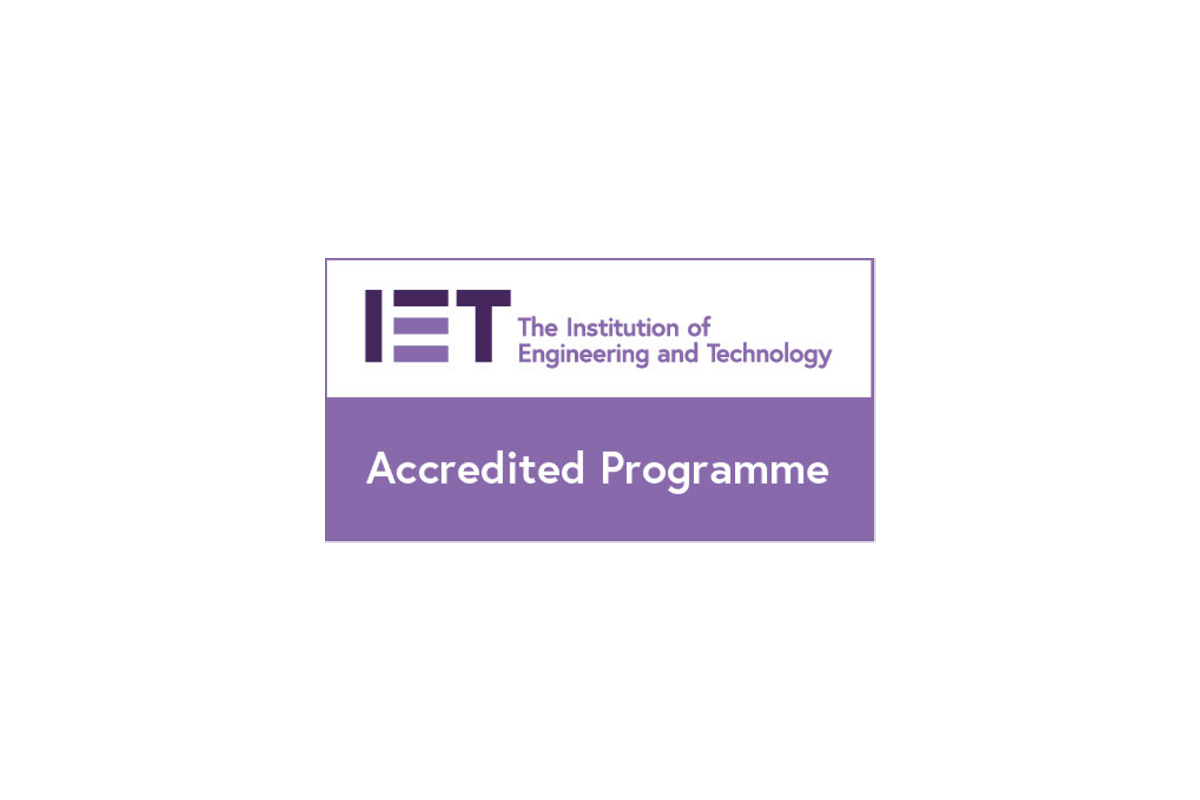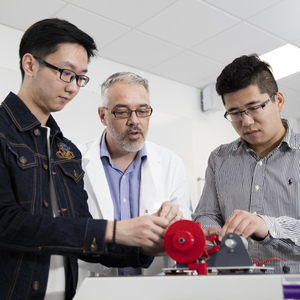Module Overview
The aim of this module is to provide students with a firm grounding in Classical Control methods, which will enable them to work with systems and control engineers, and prepare students on the control stream for advanced topics in the level three and four modules.
Students will be introduced to Control in relation to engineering systems, and in particular to develop methods of modelling the control of processes. Techniques are explored with particular reference to common practical engineering problems and their solutions, and the application of SIMULINK in this process.
Module Overview
The purpose of this programme of mathematical study is to give students the opportunity to become more competent in calculations using a range of mathematical tools. The content builds upon that delivered in the first year, and gives students the opportunity to extend their analytical skills by introducing more advanced topics that may form part of the modern engineers skill set.
Module Overview
This modules introduces the basic knowledge required to understand, design, and work with basic electronic circuits and the basic principles underlying the process of electronic engineering. No previous electronics experience is assumed and the module proceeds via a sequence of lectures supported by labs designed to introduce practical electronics.
Module Overview
Students will be introduced to electrical machines and power systems and their practical applications, supported by practical analysis/synthesis methods.
This ability is fundamental for the students with mechanical engineering background, if they are to be able to handle electromechanical problems encountered in real life situations.
Students will further have the opportunity to explore a general methodology for the calculation of electromechanical energy conversion. Students can obtain an appreciation of the features and characteristics of different types of electromechanical machines and drives and their applications.
Module Overview
This module aims to provide an introduction to the subject of industrial engineering.
Industrial engineering is a branch of engineering dealing with the optimisation of complex processes or systems. It is concerned with the development, improvement, implementation and evaluation of integrated systems of people, economic resources, knowledge, information, equipment, energy, materials, analysis and synthesis, as well as the mathematical, physical and social sciences together with the principles and methods of engineering design to specify, predict, and evaluate the results to be obtained from such systems or processes. The various topics include management science, cost and value engineering, business economics and finance, engineering management, supply chain management, operations research, health and safety engineering, operation management.
Module Overview
The content of this module aims to deepen a students’ understanding of engineering in practical applications. Students will have the opportunity to investigate the design process for mechanical, electrical or control components/systems and undertake analysis of the same.
These two strands of the module are brought together in a design project, which will be set by a professional engineering organisation. This major project will give students the opportunity to extend their creative design skills and obtain practical experience of the process of creating sound conceptual solutions through to real design problems within an industrial context. Students can build confidence and gain experience through working within a team with practicing engineers from industry.
Module Overview
The term mechatronics integrates mechanical engineering with electronics and intelligent computer control in the design and manufacture of products and processes. As a result, many products which used to have mechanical functions have had many replaced with ones involving microprocessors. This has resulted in much flexibility, easier redesign and reprogramming, and the ability to carry out automated data collection and reporting. A consequence of this approach is the need for engineers to adopt an interdisciplinary and integrated approach to engineering.
The overall aim of this module is to give a comprehensive coverage of topics, such as analogue and digital signals, digital logic, sensors and signal conditioning, data acquisition systems, data presentation systems, mechanical and electrical actuation systems, microcontroller programming and interfacing, system response and modelling, and feedback control. Students may make extensive use of Simulink and a MATLAB support packages based an Arduino board, which allow for graphical simulation and programming of real-time control systems. The module serves as an introductory course to more advanced courses such as Measurement and Testing, Sensors, Actuators and Controllers, and Embedded Systems.
Module Overview
Students with an understanding of the physics underlying semiconductor devices and applications will be given the opportunity to study the processing of semiconductors to produce devices.
Students will also establish an understanding of electrostatics, electromagnetics, and electroconductive fields and a revision of wave propagation and electromagnetic plane waves in free space and wave polarisation is covered. Relation between component size and EM wavelength such as qualitative introduction to antennas , circuit interference effects at high frequencies as well as skin effect.
Module Overview
The Placement Year constitutes a work placement during an academic year, typically between Levels 2 and Level 3, though it may take place between levels 3 and 4 of an MEng programme. Students wishing to undertake the work placement year must successfully complete Level 2 (and 3 if applicable) of their programme.
The Placement Year aims to give students a continuous experience of full-time work within an organisation. It should be a three-way co-operative activity between employer, student, and University. Work placements enable students to experience at first hand the daily workings of an organisation while setting that experience in the broader context of their studies.
Module Overview
This module provides an opportunity for students to spend a term in the second year studying at one of the University’s partner institutions abroad. Students wishing to take part in this must submit an application to the School discuss why they wish to participate in a study period abroad. A limited number of places will be available each year, and participation is subject to the School's approval.










